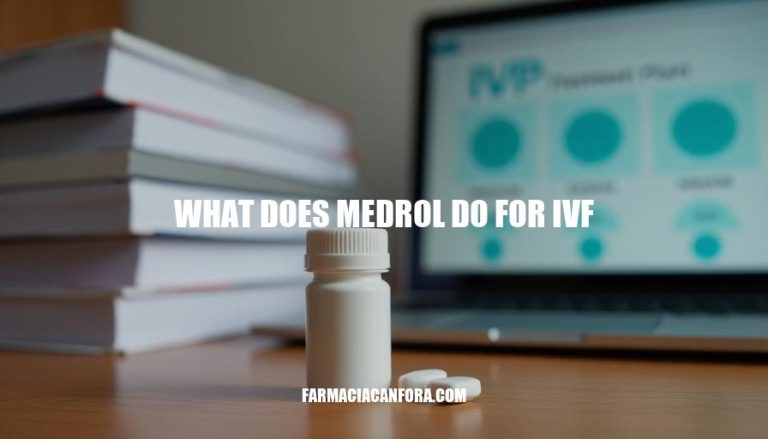


Medrol, also known as Methylprednisolone, is a corticosteroid medication commonly used in in vitro fertilization (IVF) treatments. Its primary role is to reduce inflammation in the uterine lining, which helps create a more favorable environment for embryo implantation. By preventing the body’s immune response from rejecting the embryo, Medrol increases the chances of a successful pregnancy.
This medication is particularly beneficial for women who have experienced recurrent implantation failure or miscarriages.
Medrol (Methylprednisolone) is a corticosteroid that targets the uterine lining by reducing inflammation. It works by suppressing the immune system’s response, which can sometimes mistakenly identify the embryo as a foreign body and attack it. By preventing this inflammatory reaction, Medrol helps create a more favorable environment for the embryo to implant and grow.
This anti-inflammatory action is crucial for improving the chances of successful embryo implantation and reducing the risk of miscarriage.
Reduces inflammation in the uterine lining
Prevents the body from rejecting the embryo
Lowers the risk of miscarriage
Eases discomfort from other IVF medications
Improves chances of successful implantation
Helps manage autoimmune responses
Medrol (methylprednisolone) is typically prescribed during IVF cycles to reduce inflammation and support implantation. It is usually administered as follows:
Dosage: 16 mg per day, either as one 16 mg tablet or four 4 mg tablets.
Timing: It is often started on the day of embryo transfer or the day before. The medication is taken once daily.
This medication helps to suppress any inflammatory reactions that might occur between the embryo(s) and the endometrial lining, aiding in the implantation process.
Medrol, also known by its generic name methylprednisolone, can cause several side effects. Fluid retention is a common side effect, leading to swelling in the hands, ankles, or other parts of the body. Facial flushing is another possible side effect, where the face becomes red and warm.
It is crucial to follow the doctor’s instructions when taking Medrol to minimize these side effects and ensure the medication is effective.
Not following the prescribed dosage or duration can lead to increased risks of side effects and potentially worsen the condition being treated. Always consult your doctor if you experience any unusual symptoms or if side effects become bothersome.
Medrol, also known as Methylprednisolone, is a corticosteroid medication used in IVF treatments to reduce inflammation in the uterine lining and create a favorable environment for embryo implantation. It increases the chances of successful pregnancy by preventing the body’s immune response from rejecting the embryo. This medication is particularly beneficial for women who have experienced recurrent implantation failure or miscarriages.
Medrol works by suppressing the immune system’s response, which can mistakenly identify the embryo as a foreign body and attack it. By reducing inflammation in the uterine lining, Medrol helps create a more favorable environment for the embryo to implant and grow.
Medrol is typically prescribed during IVF cycles to reduce inflammation and support implantation. It is usually administered as 16 mg per day, either as one 16 mg tablet or four 4 mg tablets, starting on the day of embryo transfer or the day before.
While Medrol can cause side effects such as fluid retention and facial flushing, following your doctor’s instructions can minimize these risks. Always consult your healthcare provider for personalized advice and to discuss any concerns you may have about taking Medrol during IVF treatment.